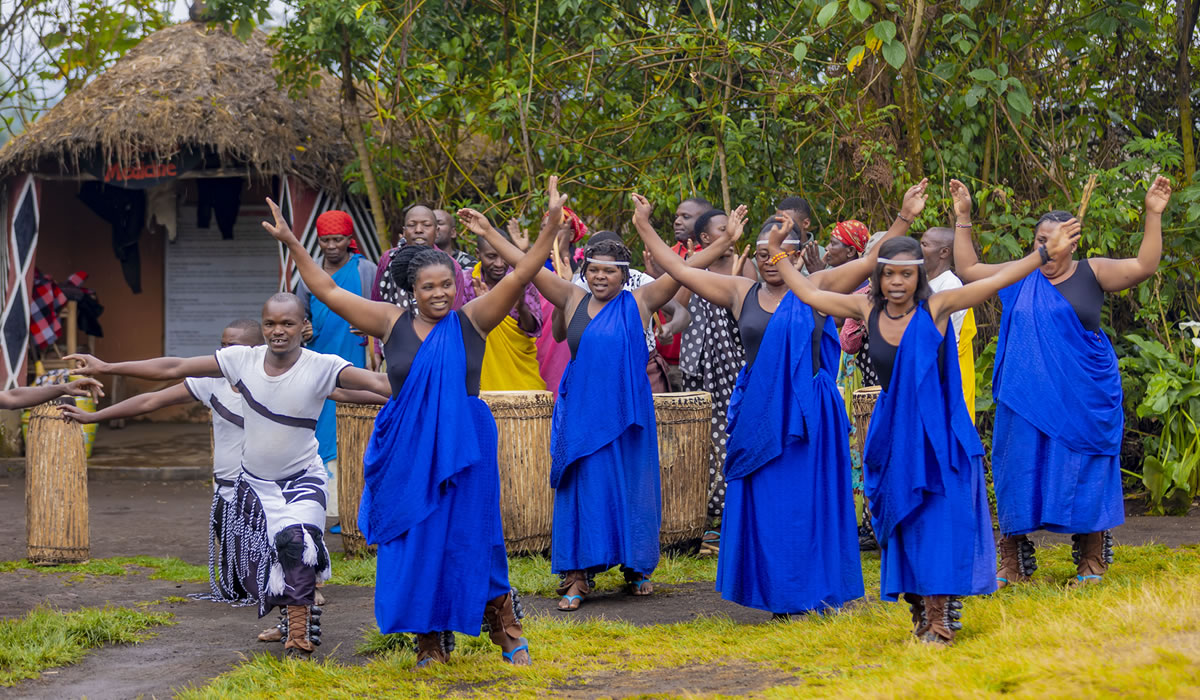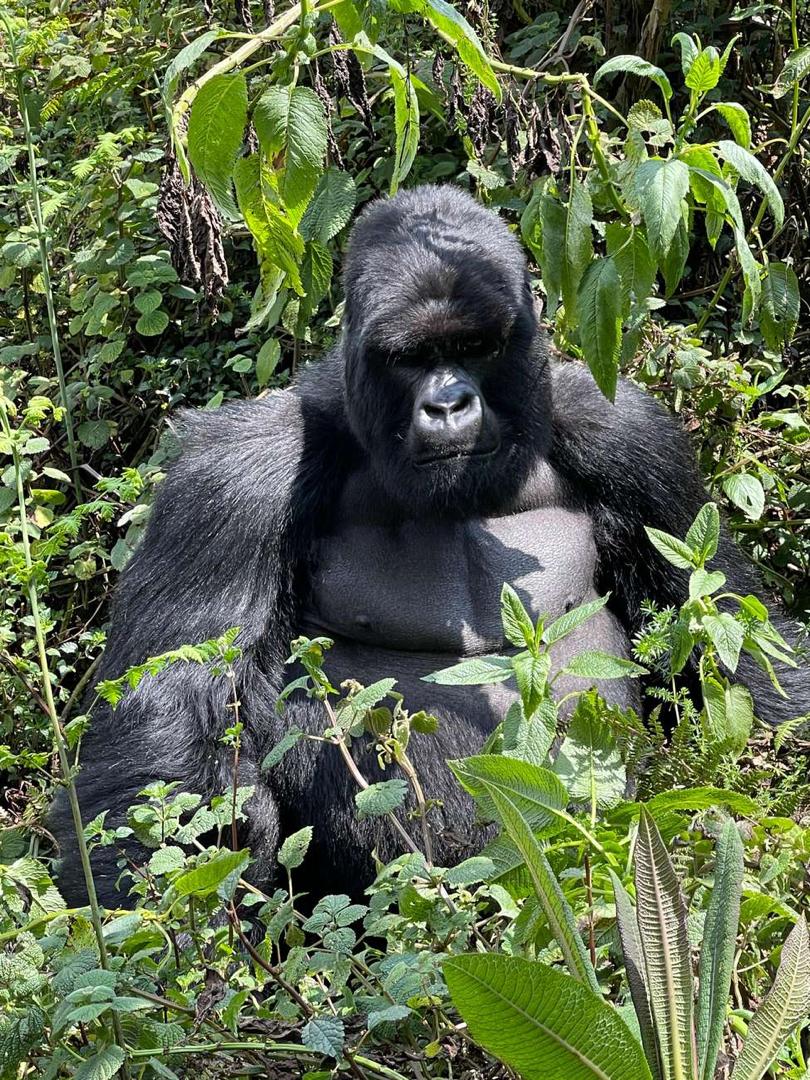One of the best gorilla tracking experiences in Uganda can be found in Bwindi Impenetrable…
Rwanda Cultural Expeditions

Rwanda is a country of remarkable landscapes, diverse wildlife, and, above all, a rich cultural heritage. Beyond its iconic gorilla trekking and safari experiences, Rwanda offers travellers a deep dive into its traditions, history, and vibrant community life. Cultural expeditions in Rwanda provide a unique opportunity to understand the resilience, creativity, and warmth of its people, making them an essential component of any visit. These journeys go beyond sightseeing, they immerse travellers in the daily lives, rituals, and artistry that define Rwandan identity, offering unforgettable experiences that connect visitors to the soul of the nation.
One of the most significant cultural experiences in Rwanda is visiting local communities near Volcanoes and Nyungwe National Parks. These villages engage travellers through interactive tours that highlight traditional farming methods, crafts, and communal life. Visitors can witness how locals cultivate crops on terraced hillsides, practice sustainable agriculture, and prepare traditional dishes. Cooking demonstrations often allow travellers to participate, learning how to make staples such as Ugali, Isombe, and brochettes. These activities are more than educational, they foster a connection between visitors and communities while promoting sustainable tourism that benefits local residents economically and socially.
Traditional Rwandan music and dance are also integral to cultural expeditions. Performances featuring drums, singing, and dynamic dance movements offer insight into the country’s history, spiritual beliefs, and communal celebrations. The Intore dance, one of Rwanda’s most famous traditional dances, tells stories of bravery and cultural identity through precise movements and rhythmic drumming. Many tours provide opportunities to participate, allowing travelers to learn steps, interact with performers, and gain a deeper understanding of Rwanda’s artistic heritage. Experiencing these cultural expressions firsthand enriches any expedition, leaving a lasting impression of the country’s vibrancy and creativity.
The Rwandan craft industry provides another avenue for cultural exploration. Local artisans produce beautifully woven baskets, pottery, wood carvings, and beadwork, all reflecting centuries-old techniques passed down through generations. Visitors can tour workshops, meet the craftsmen, and even try their hand at weaving or carving. These experiences not only support traditional craftsmanship but also offer travelers unique souvenirs that carry cultural significance. Many community-based tourism initiatives focus on crafts as a source of income for women and youth, ensuring that cultural tourism contributes directly to social development.
Historical and memorial sites are essential components of Rwanda cultural expeditions, providing context to the country’s remarkable journey of recovery and reconciliation. The Kigali Genocide Memorial is one of the most visited sites, offering a deeply moving experience that commemorates the victims of the 1994 genocide while educating visitors on Rwanda’s path to healing and unity. Guided tours provide detailed explanations of the events, personal stories, and the country’s commitment to peacebuilding. While emotionally intense, visiting such sites is an essential aspect of understanding Rwanda’s history, resilience, and contemporary social fabric.
Huye, formerly known as Butare, is another cultural hub that attracts travellers interested in Rwanda’s intellectual and artistic heritage. As the home of the National University of Rwanda and the Ethnographic Museum, Huye offers visitors insights into the nation’s cultural, historical, and academic landscape. The museum houses extensive collections of traditional clothing, tools, musical instruments, and household artefacts, providing a comprehensive overview of Rwanda’s diverse communities and their way of life. Huye’s streets feature colonial architecture, bustling markets, and artisan shops, making it an ideal destination for cultural enthusiasts seeking a deeper connection with Rwanda’s past and present.
Cultural expeditions also explore Rwanda’s spiritual traditions, which often revolve around community, respect for ancestors, and harmony with nature. Travelers may visit sacred sites, such as ceremonial grounds and ancient caves, where rituals and traditional practices are still observed. These experiences provide an understanding of Rwanda’s indigenous belief systems and their influence on daily life. Interactions with spiritual leaders or community elders offer firsthand perspectives on how cultural values are preserved and adapted in modern Rwanda. This element of cultural tourism enhances the depth of a traveler’s experience, revealing layers of meaning that go beyond surface-level exploration.
Visiting Rwanda’s rural regions allows travellers to engage with day-to-day community life. Markets are a vibrant part of these excursions, offering a sensory-rich experience of local trade, fresh produce, and handmade goods. Travellers can interact with vendors, learn about traditional foods and ingredients, and observe social interactions that form the fabric of Rwandan society. These experiences, combined with visits to farms, schools, and cooperative projects, create a holistic understanding of how communities operate and thrive. Cultural expeditions in rural Rwanda also emphasize sustainability and respect for local customs, ensuring that tourism benefits both visitors and host communities.
Participating in Rwanda’s festivals is another highlight of cultural expeditions. Events such as Umuganura, the annual harvest festival, celebrate the country’s agricultural heritage, community spirit, and gratitude for abundance. The festival features music, dance, storytelling, and food, offering travellers an authentic glimpse into Rwandan life. Similarly, Kwita Izina, the annual gorilla naming ceremony, combines cultural celebration with conservation awareness, linking Rwanda’s wildlife heritage with its cultural identity. Attending these events allows visitors to experience communal celebrations, connect with local people, and gain insights into the cultural values that guide Rwandan society.
Rwanda cultural expeditions often combine wildlife experiences with human-centered exploration to create a balanced and enriching itinerary. For example, a trip might include gorilla trekking in Volcanoes National Park followed by a visit to nearby villages, artisan workshops, and traditional dance performances. This integration highlights the interdependence of Rwanda’s natural and cultural heritage, demonstrating how communities live in harmony with their environment. Travelers gain a comprehensive view of Rwanda’s uniqueness, experiencing both the spectacular wildlife and the intimate human stories that define the nation.
Accommodation options for cultural expeditions range from luxury lodges to community-based guesthouses, providing different levels of immersion. High-end lodges near Volcanoes National Park or Lake Kivu offer comfort and scenic views while incorporating cultural experiences such as local cuisine and artisan workshops. Mid-range lodges and guesthouses, particularly in rural areas, allow travellers to stay close to communities and engage directly with local life. Choosing accommodations thoughtfully enhances the cultural expedition, as staying within or near communities promotes meaningful interaction and supports local economies.
Cultural tourism in Rwanda emphasizes responsibility and sustainability. Many tours are designed to minimize environmental impact, respect local traditions, and contribute economically to communities. By participating in these experiences, travellers not only gain deeper insights but also play a part in preserving cultural practices, promoting education, and supporting sustainable livelihoods. This ethical approach ensures that tourism contributes positively to Rwanda while providing visitors with authentic, memorable experiences.
In conclusion, Rwanda cultural expeditions offer a rich tapestry of experiences that go beyond conventional sightseeing. From interactive community visits, traditional music and dance, and artisan workshops to historical and memorial sites, spiritual traditions, and festivals, these expeditions provide deep insights into the country’s heritage. Combining wildlife encounters with human-centered exploration creates a holistic understanding of Rwanda’s identity and resilience. Travelers leave with a profound appreciation of the nation’s culture, its people’s creativity and warmth, and the ways in which tradition and modernity coexist.
Whether exploring vibrant urban centers like Kigali, historical towns like Huye, or rural villages surrounding national parks, Rwanda cultural expeditions provide transformative experiences that resonate long after the journey ends. These tours celebrate the nation’s heritage, promote sustainable tourism, and offer travellers meaningful engagement with local communities. For those seeking more than just natural beauty, Rwanda’s cultural expeditions reveal the heart and soul of this remarkable country, making every trip not only memorable but deeply enriching.

